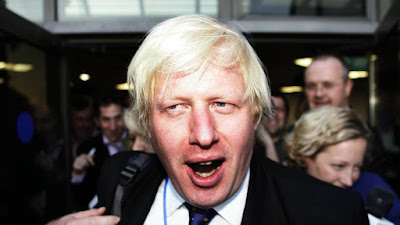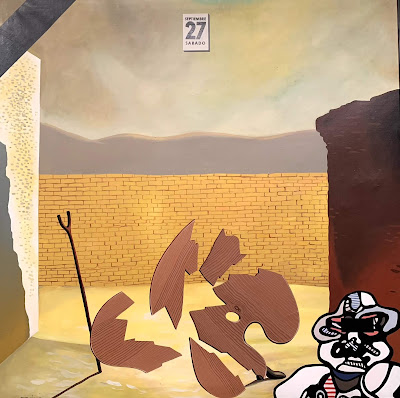 |
| The ticket for your turn Vital whatever you're after |
So imagine my surprise when we moved to Strasbourg. I knew we had to register with the local authorities but didn’t know how soon. In the end, I went four months after we arrived. The interview went well, the young woman dealing with my case being polite, good-humoured and apparently efficient.
I know one should never offer anyone in authority any information for which they haven’t asked. For instance, like an experienced border crosser, I never show my passport unless told to produce it. But somehow on this occasion my conscience was bothering me, so I asked a question I never should have.
“Oh, by the way, just how long does one have to register? Is it three months or six?”
She looked up from the paperwork with an expression as cool as it was level.
“You have a week,” and paused dramatically. “But did I ask you when you got here?”
Later we moved just across the border into Germany. That’s the country of ‘Ordnung muß sein’, perhaps best translated as ‘order is to be respected’. So we were a bit worried about how the authorities would react when we decided we wanted a wood-burning stove.
“You need a chimney sweep to give your chimney a safety certificate and you can go ahead.” I had visions of complex inspections, failed on technicalities, and mountains of paperwork. But she went blithely on. “Here’s a list of local sweeps; personally, I was always find this one least demanding when it comes to the certificates.”
Now we’re in Spain. The land, we were told of ‘mañana’, where everyone prefers the easy life, where “laid-back” is a national pastime.
The first shock was to discover the punctuality of the people we’ve met. Not just for business meetings, either. We’ve found that friends are always on time simply to go out for a walk – and punctual not because they’re on time, but because they turn up ten minutes early to be sure they’re not late.
And then there are the authorities.
To be fair, despite a small number of exceptions, they’re uniformly friendly and kind. Even one who wasn’t to start with, ended up wreathed in smiles at the end of our interview. It was either that she’d had a lousy client just before us and it took a while for her to recover her equanimity, or that she was charmed by my delightful selection of Dad jokes – a little laboured in my halting Spanish but still up to the same remarkable standard as I achieve in English (OK, please resist the comment, it’s much too obvious).
The problem isn’t the people, it’s the process. I’ve already remarked that you can never do anything in a single visit in Spain. The first visit is so that you can be told that, although you followed the steps outlined on their website pretty well exactly, you failed to take one crucial step, or failed to bring one crucial document, or possibly failed to go to the right building in the first place, so that you have to plan for another visit. Or possibly more than one.
Most recently, it was the payment of a duty. We’d followed the online instructions carefully, including printing the document and taking it to the bank to make the necessary payment. But it turned out that, had we ticked another box (for, so the form claimed, a ‘supplementary’ payment, and we thought we only need the basic service), we’d have been charged a couple of euros more, and that was the sum we should have paid. Fortunately, they told us that this time we wouldn’t need a new appointment, but should just bring in the reprinted form with the bank’s certification that we’d paid the correct sum.
That was good news. Because this was a police office and if you showed up without an appointment, you had to take a ticket and wait your turn. But when your turn came around, all it enabled you to do was to make an appointment – and for two months down the line, the pressure on that service being so intense. To go through that again would have been soul-destroying.
As it happens, even with an appointment, we weren’t seen at the allotted time. Instead, just after the specified time, someone came out and gave us – a ticket. So we had to wait for our turn to come up on the display just like anyone who didn’t have an appointment.
 |
| You had an appointment? So what? Wait your turn like anyone else. |
But, hey, the man who told us did it politely and with a smile. Which makes all the difference, doesn’t it? A cold, unsmiling bureaucrat, of the kind we have in England, is so much harder to deal with.
So I can now confidently say that, of the countries I’ve had to deal with, Spain certainly has the most complex and time-consuming of administrative systems. But ironically, it’s quite pleasant.
Because the people are.


















